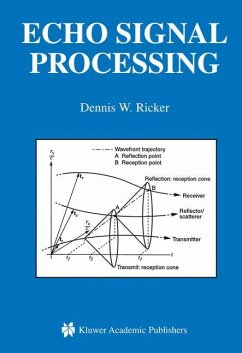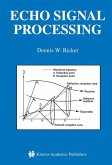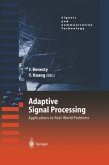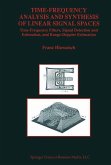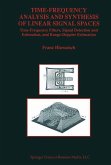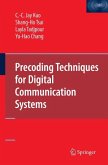This book presents introductory and advanced topics in the areas of signal theory and processing as specifically applied to acoustic echo-location. It is written at the senior undergraduate or graduate level and assumes some familiarity with signal processing subjects such as linear and complex algebra, probability, advanced calculus, and linear system theory. The material is presented as a logical development starting with the basic principles of signal theory and proceeds to the development of topics in detection and estimation theory, waveform design, echo modeling, scattering theory, and spatial processing.
Echo Signal Processing addresses the practical as well as theoretical aspects of receiver and waveform design and should be of interest to the practicing engineer as well as the student. Numerous examples demonstrating the concepts are provided and important relationships are boxed. The book departs from many radar-oriented texts as the effects of relative motion are treated in terms of the dilation of the signal time base rather than as a simple Doppler frequency shift. The fundamental detection, estimation, time dilation, and waveform theory presented is of a general nature and applicable to communications and radar as well as sonar.
This book presents basic and advanced topics in the areas of sig nal theory and processing as applied to acoustic echo-location (sonar). It is written at the advanced undergraduate or graduate level, and as sumes that the reader is conversant with the concepts and mathematics associated with introductory graduate courses in signal processing such as linear and complex algebra, Fourier analysis, probability, advanced calculus, and linear system theory. The material is presented in a tuto rial fashion as a logical development starting with basic principles and leading to the development of topics in detection and estimation theory, waveform design, echo modeling, scattering theory, and spatial process ing. Examples are provided throughout the book to illustrate impor tant concepts and especially important relationships are boxed. The book addresses the practical aspects of receiver and waveform design, and therefore should be of interest to the practicing engineer as well as the student. Although much of the book is applicable to the general echo-location problem that includes radar, its emphasis is on acoustic echo location especially in regard to time mapping and the wideband or wavelet description of Doppler. Introductory signal theory material is included in the first chapter to provide a foundation for the material covered in the later chapters. A consistent notational convention is ob served throughout the book so that the various mathematical entities are readily identified. This is described in the glossary and symbol list.
Hinweis: Dieser Artikel kann nur an eine deutsche Lieferadresse ausgeliefert werden.
Echo Signal Processing addresses the practical as well as theoretical aspects of receiver and waveform design and should be of interest to the practicing engineer as well as the student. Numerous examples demonstrating the concepts are provided and important relationships are boxed. The book departs from many radar-oriented texts as the effects of relative motion are treated in terms of the dilation of the signal time base rather than as a simple Doppler frequency shift. The fundamental detection, estimation, time dilation, and waveform theory presented is of a general nature and applicable to communications and radar as well as sonar.
This book presents basic and advanced topics in the areas of sig nal theory and processing as applied to acoustic echo-location (sonar). It is written at the advanced undergraduate or graduate level, and as sumes that the reader is conversant with the concepts and mathematics associated with introductory graduate courses in signal processing such as linear and complex algebra, Fourier analysis, probability, advanced calculus, and linear system theory. The material is presented in a tuto rial fashion as a logical development starting with basic principles and leading to the development of topics in detection and estimation theory, waveform design, echo modeling, scattering theory, and spatial process ing. Examples are provided throughout the book to illustrate impor tant concepts and especially important relationships are boxed. The book addresses the practical aspects of receiver and waveform design, and therefore should be of interest to the practicing engineer as well as the student. Although much of the book is applicable to the general echo-location problem that includes radar, its emphasis is on acoustic echo location especially in regard to time mapping and the wideband or wavelet description of Doppler. Introductory signal theory material is included in the first chapter to provide a foundation for the material covered in the later chapters. A consistent notational convention is ob served throughout the book so that the various mathematical entities are readily identified. This is described in the glossary and symbol list.
Hinweis: Dieser Artikel kann nur an eine deutsche Lieferadresse ausgeliefert werden.
From the reviews: "Echo Signal Processing is a book that is concerned primarily with echo location and sonar. ... will be of use to graduate students and lecturers teaching signal processing with special emphasis on echo-location detection and estimation. ... Echo Signal Processing progresses in a methodical way, explaining basic signal processing principles, kinematic formation of echoes, and the fundamentals of echo detection and estimation for simple point-scattering processes. Each chapter ends with an extensive bibliography of where the reader can learn more about a particular topic." (Dharmendra Lingaiah, IEEE Circuits & Devices Magazine, Vol. 21 (2), March/April, 2005)

